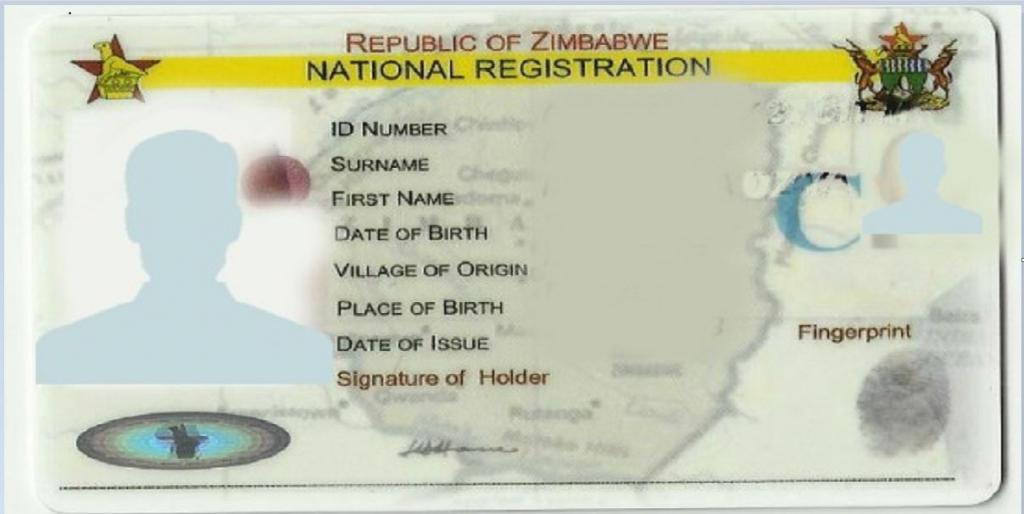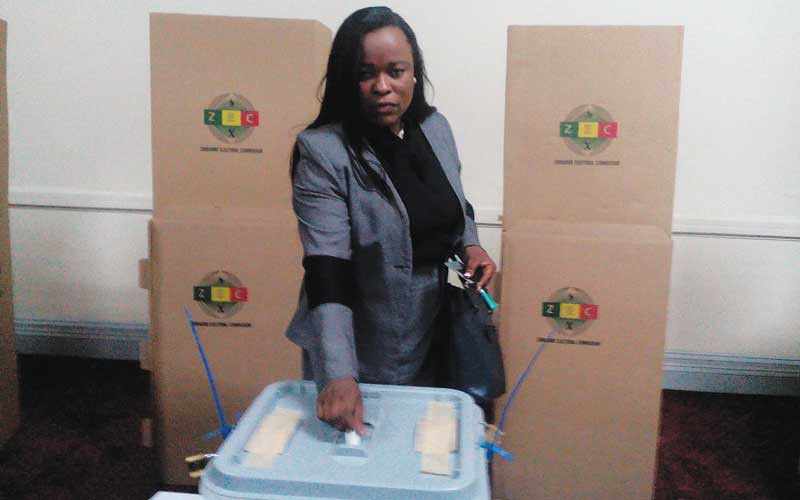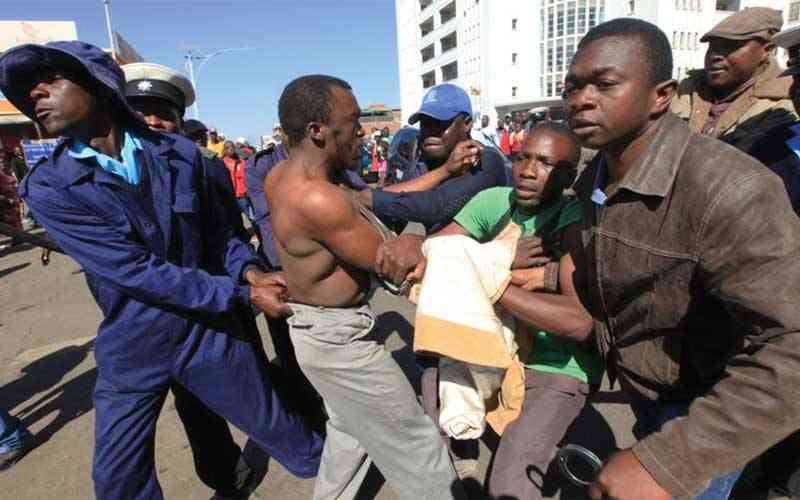
YOUTH Forum wishes to congratulate the 25 603 citizens who registered to vote from the start of the voter registration blitz to the present.
As announced by the Zimbabwe Electoral Commission (Zec), 25 603 registered to vote from the start of the registration blitz between February 1 and 14.
We applaud the active citizens who took their precious time to go and register to vote.
We specifically celebrate youths who, despite the informalisation of the economy which demands their time and presence throughout the day, took time to go and register to vote at various registration centres across the country.
As Youth Forum, encouraging youth participation and youth voter registration is the current focus.
The figure, therefore, represents commitment of some of our youths to participate and define their own destinies.
While we applaud the numbers as announced by Zec, we note with concern the low numbers of the youths who are registering to vote during this blitz.
Youth Forum has observed that there is low voter registration turnout of the youths across all provinces.
- Chamisa under fire over US$120K donation
- Mavhunga puts DeMbare into Chibuku quarterfinals
- Pension funds bet on Cabora Bassa oilfields
- Councils defy govt fire tender directive
Keep Reading
We also note the hurdles that impede youth voter registration across the country.
These include lack of identity documents, lack of information on registration centres and the blitz itself.
We, therefore, continue to call for increased information dissemination particularly in the rural areas and peri urban communities.
We further call upon the Home Affairs ministry to address the challenge of failure to access identity documents.
Identity documents are a right and the State must work to facilitate their access without cost and difficulties.
Identity documents are key beyond elections as they help the youth in their various educational and professional endeavours.
We further call upon Zec to give disaggregated data on registrants to help us to focus our efforts at specific demographic groups on voter registration.
Disaggregated data also helps to identify specific challenges affecting various demographic groups and work to address them.
Finally, Youth Forum continues to encourage youths to register to vote in the first phase blitz which will end on February 28, 2022.
Voter registration is part of the youth participation drive which forms the bedrock of our interventions as Youth Forum. –Youth Forum Zimbabwe
Compensate Chilonga community before relocation
THE High Court of Zimbabwe sitting at Harare recently dismissed an application to have the provisions of sections 4 and 6(1)(b) Communal Lands Act, Chapter 20:04 declared unconstitutional.
The case had been taken to court by three members of the Hlengwe Xangani community, an ethnic group in Zimbabwe commonly known as the Chilonga community.
The case was recorded as Livison Chikutu and 2 Ors v Minister of Lands and Ors HH 02/22.
Between February and March 2021, government issued a series of statutory instruments (SIs), the main object of which was to set aside a tract of communal land measuring 12 940 hectares for the purpose of establishing an irrigation scheme in Chiredzi district.
The land in question has been inhabited by the Hlengwe Xangani (Chilonga) community since way before 1890.
The impact of the SIs is that some sections of the Chilonga community might be affected to the extent that they face eviction to pave way for the proposed irrigation project.
The said SIs were promulgated in terms of the Communal Lands Act. Section 4 of the Act vests control of all communal land in the President.
Section 6 of the same Act empowers the President to make additions or subtractions from any communal land.
On behalf of the Chilonga community, the applicants alleged that the land in question is not part of communal land envisaged in the Communal Lands Act.
They base the argument on the fact that their ancestors were not settled through colonialism and that their land was not artificially created and carved out by the Tribal Trust Land Act. The crux of the argument is that the land cannot be set aside in terms of the Communal land Act.
The applicants further argued that sections 4 and 6(1)(b) of the Communal Lands Act have a violent and obnoxious origin. They pointed out that sections 4 and 6(1)(b) of the Act violate their right to life, human dignity, equal protection of the law and culture and language.
They also argued that the proposed action to move them from their ancestral land violates their right to property.
The court accepted that the Communal Lands Act and particularly the vesting of title of land in any person other than the occupiers themselves has its origins on the pathological hatred of the aboriginal races by the colonial powers.
The court, however, held that there was nothing unconstitutional by vesting communal land in the President as envisaged in section 4 of the Act.
The court ruled that the fact that the Xangani people inhibitated the land in question way before colonisation does not exclude it from the definition of communal land in terms of the Communal Lands Act.
In simpler terms, the court concluded that the land in question is part of communal land.
The judge observed that while the Act has racist origins, at independence and up to the present day, government retained the concept of vesting communal lands in the State President.
Justice Joseph Mafusire, who presided over the case, accepted the respondents’ argument that the land is not vested in the President in his personal capacity.
For the respondents, the Attorney-General argued that the land is vested by virtue of the powers vested in him as the State President to ensure orderly development of communal land.
In so far as the setting aside of land is concerned, the respondents argued that no significant portion of the land occurs without proper planning and consultation with communal leaders and the local authorities and that had been done in the Chilonga case.
The applicants were arguing otherwise. They alleged that no proper consultations had been done. The court concluded that whether or not consultation was done was a question of fact and not a constitutional determination. The case before the court was a constitutional one.
The High Court invoked the political question doctrine. The judge pointed out that the land question was a political question which should be left for the other arms of the government to determine.
In simpler terms, the court said the Chilonga case could not be determined by the law and the courts, but rather politics should do so. At paragraph 14 of the cyclostyled judgment, the court said: “Sometimes politics has to speak first, and only then may the law take over”.
The issue before the court was not whether or not the Chilonga community should be displaced or evicted. The outcome, however, has a bearing on the ultimate decision to be taken by government. Had the court allowed the application, the proposed irrigation project was arguably going to be suspended in the long run.
Now that the sections which permitted the President to set aside the land in question has been found not to be ultra vires to the Constitution, at law there is nothing that bars government from implementing the project.
In its response to the application, government said no one was to be displaced as the identified land was largely inhabited. That a section of the community will be moved is an undeniable fact.
Government, through the Attorney-General, says those that might be affected will be relocated and “adequately compensated”.
There are little or no prospects of success in appealing against the High Court decision. Hope is now pinned on the compensation undertakings.
It was argued that the Chilonga irrigation scheme would be an extension of the Tugwi-Mukosi project. It is a fact that people who where relocated from Tugwi-Mukosi to Chingwizi Transit Camp were not adequately compensated.
It is, therefore, recommended and proposed that governments adequately compensate the affected people before relocation to avoid a repeat of the Chingwizi disaster. –Masvingo Centre for Research and Community Development
State of country’s education sector worrisome
AS young women, young mothers and young parents, we are outraged by the current status of our country’s education.
Our children’s teachers are now living in abject poverty instead of being role models and torch bearers of the future of our children and beloved country.
The dignity of our educators has since been lost due to the mismanagement of the education sector, which has resulted in teachers being paid measly salaries.
Our children are losing faith in the very education system that they are supposed to look up to for a better future.
The classrooms, which are supposed to give them hope, are telling a different story.
The are now telling a story of hopelessness.
Our children’s lives are in jeopardy. They are continuously losing out on their constitutional right to education and remain vulnerable to all forms of abuse at home and in the communities.
The state of our education and government’s total disregard of the welfare of our teachers is clearly a class and gendered warfare.
As young, low class/poor women and mothers, we embrace our responsibility and national duty to breathe life into our country.
We are working tirelessly to safeguard the future of our children by religiously paying school fees.
Yet, our children still find themselves deprived of a better future because schools are closed, because the government is not heeding the educators’ call for a decent salary.
Our government is failing us. Instead, it is pushing us into a traumatic vicious cycle where we have to perpetually be caregivers to our children after they suffer abuse in the homes and community.
We call upon government to accord our children their constitutional right to education through urgent restoration of the teachers’ dignity by paying them decent salaries.
We call upon the United Nations Children’s Fund to recognise the state of education as a national crisis and call upon the Zimbabwean government to guarantee children a safe and consistent learning environment.
We call upon all mothers and parents by whatever right to stand with our teachers and demand #JusticeforTrsZw.
Let us all remind government that a middle-income class by 2030 is not possible when our education system, which is one of the key anchors of our economy, is in a crisis. We also remind government that it should not leave anyone behind by denying our children a basic constitutional right to education. –Institute for Young Women Development











